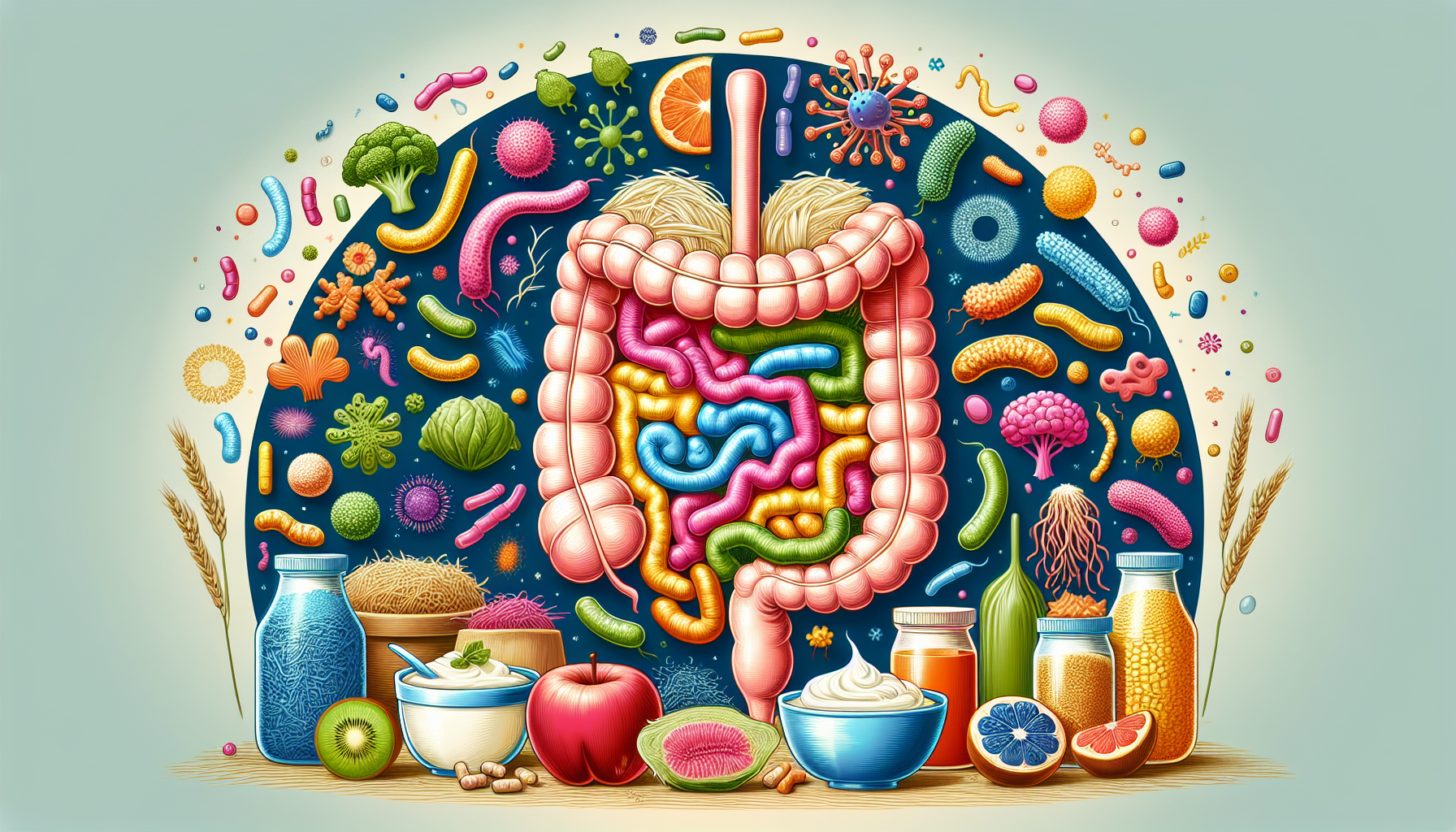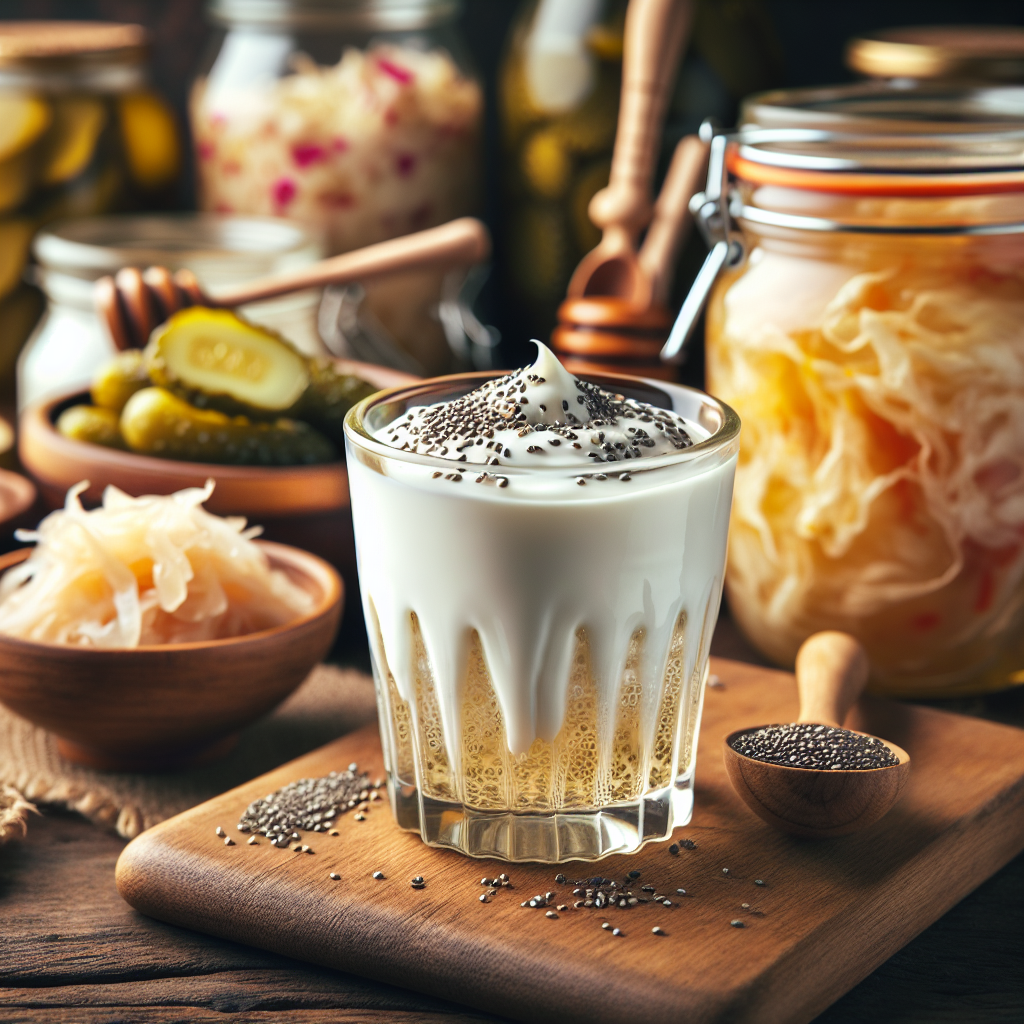The gut microbiome is a complex and dynamic community of microorganisms that resides in the digestive tract. It plays a crucial role in human health, influencing digestion, immunity, and even mental well-being. A balanced gut microbiome is essential for optimal health, and one of the most effective ways to nourish and maintain this delicate ecosystem is through the consumption of probiotics and prebiotics. This article delves into the science behind these powerful dietary components, their benefits, and how to incorporate them into your daily regimen for a thriving digestive system.
Understanding Probiotics and Prebiotics
Before we explore the synergistic relationship between probiotics and prebiotics, it’s essential to define what each term means. Probiotics are live microorganisms that, when administered in adequate amounts, confer a health benefit on the host. These beneficial bacteria are found in various fermented foods such as yogurt, kefir, sauerkraut, and kimchi, as well as in dietary supplements.
Prebiotics, on the other hand, are non-digestible food components that promote the growth and activity of beneficial microorganisms in the gut. They are found in high-fiber foods such as fruits, vegetables, and whole grains. Prebiotics act as food for probiotics, helping to stimulate their growth and activity in the digestive tract.
The Benefits of a Healthy Gut Microbiome
The gut microbiome impacts health in several profound ways. A diverse and balanced microbiome can help:
- Enhance digestion and nutrient absorption
- Strengthen the immune system
- Protect against pathogens
- Regulate metabolism
- Improve mental health through the gut-brain axis
Incorporating probiotics and prebiotics into your diet can help maintain this balance, potentially offering protection against various health issues. For those interested in learning more about the influence of gut health on well-being, the article Understanding the Digestive System and Its Functions provides a comprehensive overview.
Probiotics: The Good Bacteria
Probiotics are often referred to as "good" bacteria because they help keep the gut healthy. They can help balance the gut microbiota, which can be disrupted by factors such as diet, illness, or antibiotic use. Some specific strains of probiotics have been shown to be particularly beneficial, including Lactobacillus and Bifidobacterium.
One aspect of maintaining a balanced gut microbiome involves managing inflammation, which is a key factor in digestive health. The article Chronic Inflammation and Digestive Health: Risks and Remedies explores this topic in depth.
Prebiotics: Fertilizer for the Gut
Prebiotics work synergistically with probiotics, serving as nourishment to help beneficial bacteria thrive. Foods rich in prebiotic fibers, such as garlic, onions, leeks, asparagus, and bananas, can help increase the population of healthy bacteria in the gut.
For an in-depth understanding of how dietary fiber supports digestive health, consider reading the article Dietary Fiber and Digestive Health: The Undeniable Link.
How to Incorporate Probiotics and Prebiotics into Your Diet
A balanced diet rich in diverse foods is the best way to support your gut microbiome. Including fermented foods like yogurt, kefir, and fermented vegetables can increase your intake of probiotics. To ensure you’re getting enough prebiotics, aim to eat a variety of fruits, vegetables, and whole grains.
Supplements can also play a role in gut health. For example, Supergreatcbd.com offers insights into how CBD products might interact with the gut microbiome, offering another layer to the conversation about gut health.
The Evidence Behind Probiotics and Prebiotics
Scientific research supports the health benefits of probiotics and prebiotics. Studies have shown that they can help improve digestive health, boost immunity, and may even have a positive effect on mental health.
- A study published in the journal "Gut Microbes" suggests that probiotics can help restore the gut microbiota to a healthy state after it has been disrupted (Gut Microbes).
- Research in the "Journal of Nutrition" indicates that prebiotics can enhance the growth of beneficial gut bacteria, which has positive implications for health (Journal of Nutrition).
- The "International Journal of Food Sciences and Nutrition" has published findings on how the combination of probiotics and prebiotics, known as synbiotics, can lead to improved health outcomes (International Journal of Food Sciences and Nutrition).
Potential Side Effects and Considerations
While probiotics and prebiotics are generally considered safe, some individuals may experience side effects such as bloating or gas, especially when first introducing these components into their diet. It’s important to start with small amounts and gradually increase intake to allow the gut to adjust.
Individuals with specific health conditions or those on certain medications should consult a healthcare provider before making significant changes to their diet or taking supplements.
Future Directions in Gut Health Research
Research into the gut microbiome is ongoing, and new discoveries are continually being made. The potential for probiotics and prebiotics to contribute to personalized nutrition and medicine is particularly exciting, with the hope of tailoring dietary interventions to individual microbiome profiles for improved health outcomes.
Conclusion
Maintaining a healthy gut microbiome is essential for overall health, and probiotics and prebiotics are key players in this process. By understanding the role these dietary components play and how to incorporate them into your diet, you can take an active role in supporting your digestive health and well-being.
For those looking to explore the intricate connections between diet, gut health, and overall well-being, the resources and studies cited here provide a solid foundation. Embracing a diet rich in probiotics and prebiotics can pave the way for a healthier, more balanced gut microbiome, and, by extension, a healthier life.



